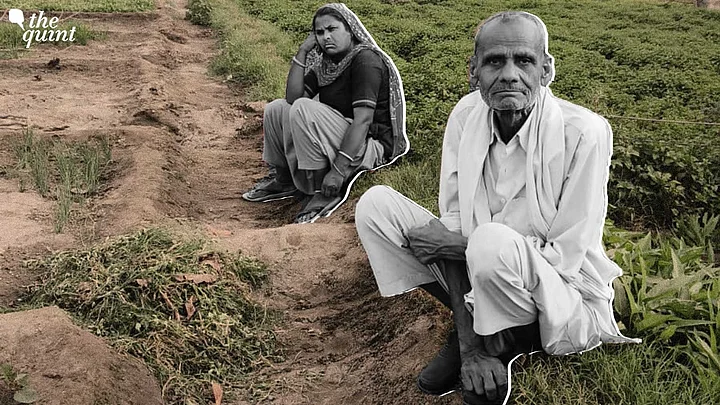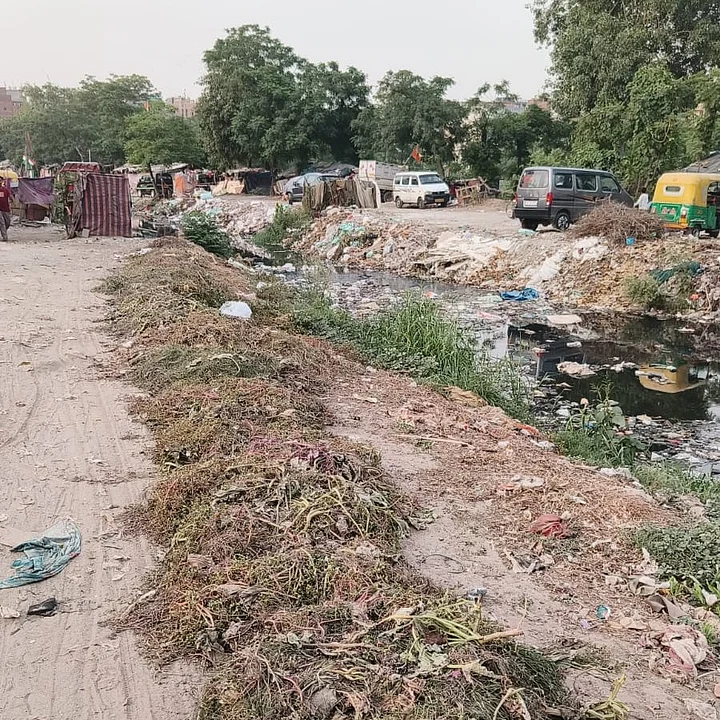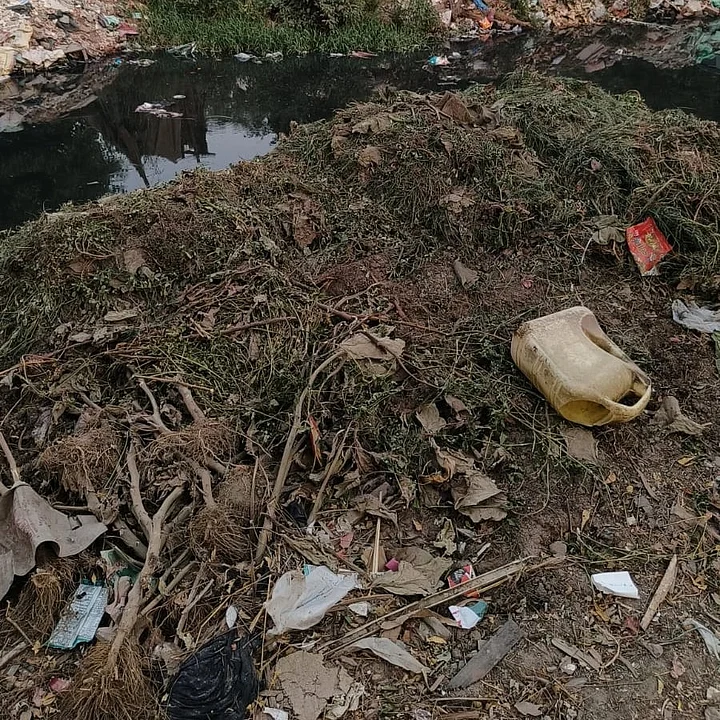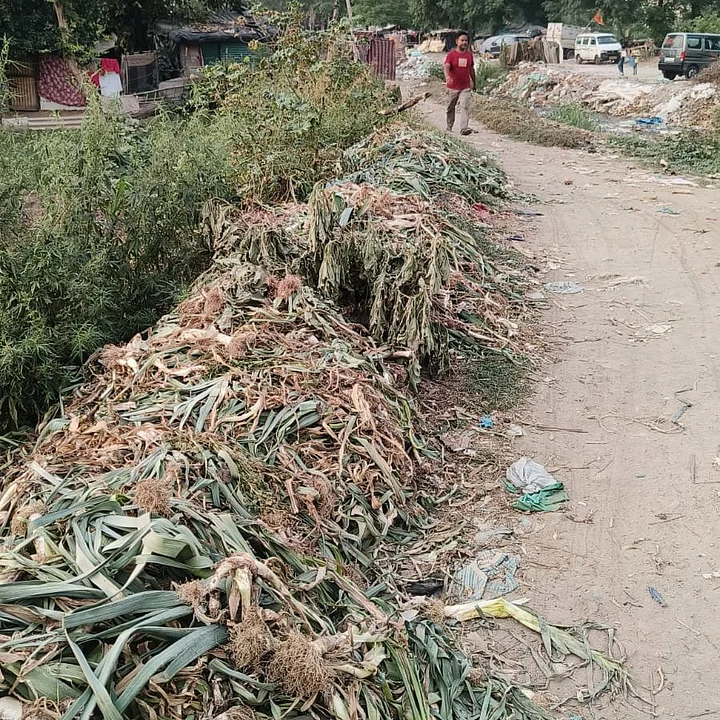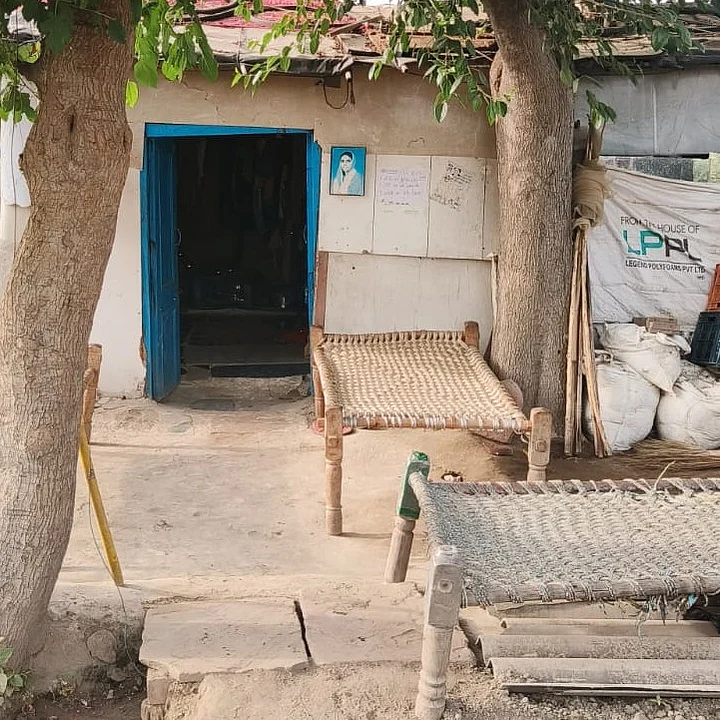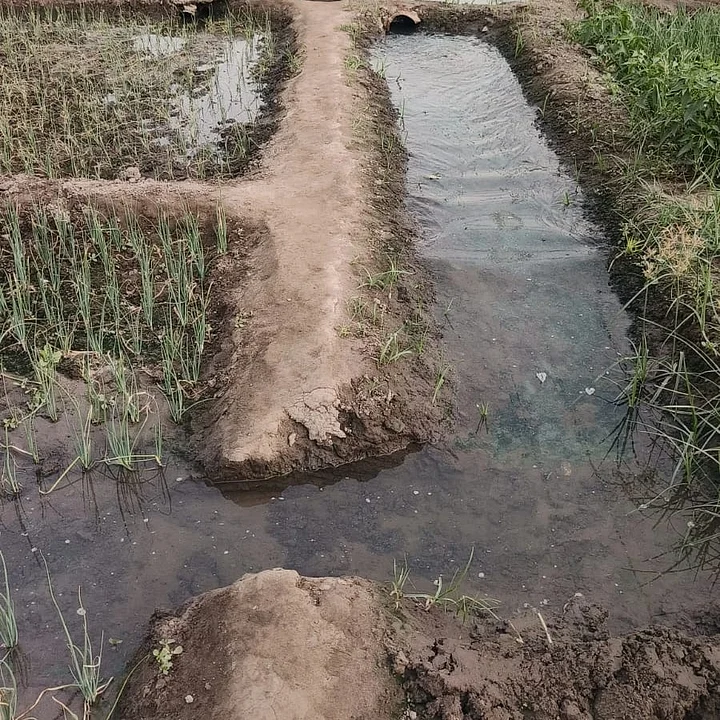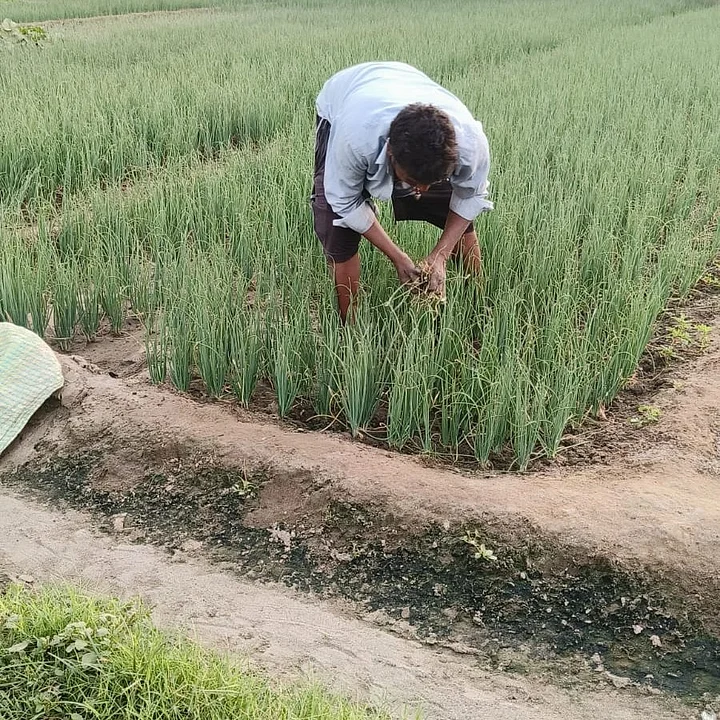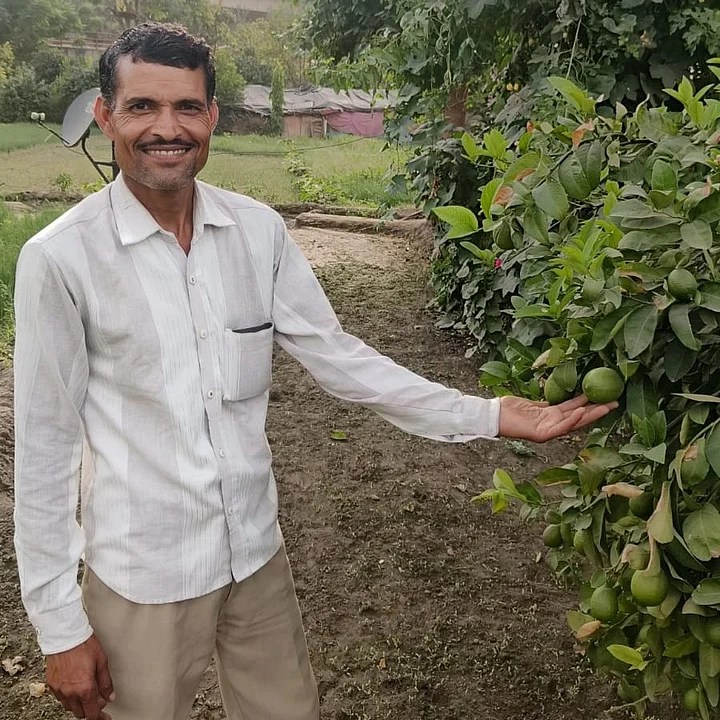When Omkar Singh turned 16, he started farming. And now, at 42, he continues to do just that on a plot of land in east Delhi’s Shastri Nagar. Spread across one acre of land, the father of five grows spinach, basil, chillies, onions, and brinjals. Each month, he sells the produce in the local market for approximately Rs 20,000.
This year, however, a spell of unseasonal rains in April, meant bad news for Singh and other urban farmers.
“It is summer right now. It’s supposed to be hot… But remember, how hard it rained a few weeks ago? All our crops got destroyed. There was nothing left to sell in the market,” said Singh, as he pointed at a pile of rotting green-brown produce.
Singh, his wife, and their three children live in a one-room house attached to the land that he sows and tills through the year. “Our income depends on this field. If it rains and everything is ripped apart, how will I pay rent or buy rice, oil, milk, and sugar? How will I pay my children’s tuition fees? After all, our lives are too dependent on God’s will,” said a dejected Singh.
On 16 May – a month after Singh lost his crops to the rains – The Quint visited Shastri Nagar, and met urban farmers, who recounted tales of loss, the fear of sleeping hungry, and their worry about the future.
- 01/04
Omkar Singh's farm produce destroyed by unseasonal rains in April.
(Photo: Saptarshi Basak/The Quint)

- 02/04
Omkar Singh's farm produce destroyed by unseasonal rains in April.
(Photo: Saptarshi Basak/The Quint)

- 03/04
Omkar Singh's farm produce destroyed by unseasonal rains in April.
(Photo: Saptarshi Basak/The Quint)

- 04/04
Omkar Singh's house.
(Photo: Saptarshi Basak/The Quint)

'It's Nature's Fury'
In Delhi, March saw unusual amounts of rainfall and hailstorms, as the city recorded around 53.2 mm of rainfall in March across the month this year. That's three times the monthly average of 17.4 mm.
In April, as social media was abuzz with aesthetic Delhi-drenched-in-rain photos, farmers in the city were living their worst nightmare. During this month, IMD stated that the national capital recorded 20.1 mm of rainfall, which is 23 percent above the average of 16.3 mm for the month. In fact, in 2022, Delhi recorded only 0.3 mm of rainfall in April. The last time it rained more in April compared to this year was in 2017, that is, 26.9 mm.
The persistent rainfall accompanied by high winds damaged crops across the western and northern parts of India, as per multiple reports put out by the IMD. It is pertinent to note that the rains arrived right after premature hot temperatures. This rapid change is especially damaging for crops such as wheat.
The Quint spoke to Anjal Prakash, Research Director at the Bharti Institute of Public Policy at the Indian School of Business, who said that “global warming messes with all seasons.”
He added, “When you want rain, the rain will not come. When you really don’t want it to come, it pours out of nowhere. This is exactly what’s happening in India. We saw this in February when there were early heat waves in Punjab and the entire northwest region, which impacted the production of wheat.”
Prakash said that his discussions with farmers revealed that the wheat grains were about to mature but the heat wave arrived, and the grains dried up. “Then it rained heavily and everything was destroyed. Some of the farmers told me that they lost 20-25 percent of their wheat production. We cannot predict anything. Our current scientific models are not sophisticated enough for this,” he said.
Long Hours of Work Gone to Waste
Babul Rao, 60, who is employed at Singh’s farm in Shastri Nagar, has the same assessment, albeit anecdotal. “This happened in our village Uttar Pradesh’s Badaun in February this year. We sowed a lot of wheat. It grew quite a bit, and a few days before the harvest, the rains destroyed everything. We did not earn a single paisa from that batch, not a single paisa. It’s nature's fury,” he lamented.
And then there is 38-year-old Parameshwar, who too is employed at Singh’s farm. “My day starts at 5 am and I work till noon. Then I take a break till 4 pm because it’s just too hot to work… Unbearable. Then I work from 4 pm to 7 pm when it cools down a little bit. After that, it gets dark, and so I rest, eat, watch some videos on my phone, and go to bed by 11 pm,” said Parameshwaram, as he cleaned up a batch of basil.
All his hard work in March and April, however, went to waste when rains lashed out. “It felt bad that all this hard work was for nothing but what can I say? So many people have it worse,” he said. On being asked if he is willing to undertake odd jobs instead of farming, Parameshwar came a reply, “There aren’t a lot of jobs out there and where will I go if I quit? I like farming. It’s all I know… Of course, I wish I didn’t have to suffer this much due to these rains.”
'Climate Change Altering Season Patterns': What Experts Say
Bhasker Tripathi, a senior journalist who writes on agriculture, climate, and rural India, said that while erratic weather is not a new phenomenon, the frequency and intensity of these events are changing rapidly due to climate change.
“The 14 crore farmers in the country are most vulnerable due to this. They need government support to quickly adapt to the changes. The support could include better insurance schemes, better availability of climate-resilient seeds, information dissemination about the available resources, and bettering safety nets such as the Mahatma Gandhi National Rural Employment Guarantee Act (MGNREGA),” he said.
Tripathi said that there is no dearth of ideas but what’s lacking is political will. “A distressed agriculture sector in India could have a tragic ripple effect throughout the economy,” said Tripathi.
Meanwhile, The Quint also spoke to climate scientist Abinash Mohanty about the impact of climate change. He said, “You can't manage what you can’t measure and that holds true for climate risks. Climate change is altering seasonal patterns and pushing developmental trajectories beyond thresholds. The instances of incessant and erratic rain spells are a testament to how climate extremes are going to ravage the agricultural sector the most.”
Mohanty, who works at IPE Global, said that climate change will make extreme events harsher and graver. “Depressions are turning into cyclones, and incessant and erratic rainfalls are resulting in high-impact flood events. India is still an agrarian society and we heavily depend on agriculture for jobs, growth, and sustainability mandates. What is lacking from the domain is empirical evidence on the quantum of climate change’s impact on sectors such as agriculture in India. Mapping hazards, risks, and vulnerability at the hyper-granular level are imperative,” said Mohanty.
Singh is still hopeful.
- 01/03
Onions growing in Omkar Singh's field.
(Photo: Saptarshi Basak/The Quint)

- 02/03
Parameshwar working on a batch of grown onions.
(Photo: Saptarshi Basak/The Quint)

- 03/03
Omkar Singh posing next to a lemon shrub on his plot.
(Photo: Saptarshi Basak/The Quint)

“We have planted all the seeds again, and they are growing quickly. I have enough savings to deal with the April loss. If it doesn't rain badly this month, we should be able to make a decent profit. It’s all God’s will. Sometimes he blesses us, sometimes he doesn’t," he said with a smile.
